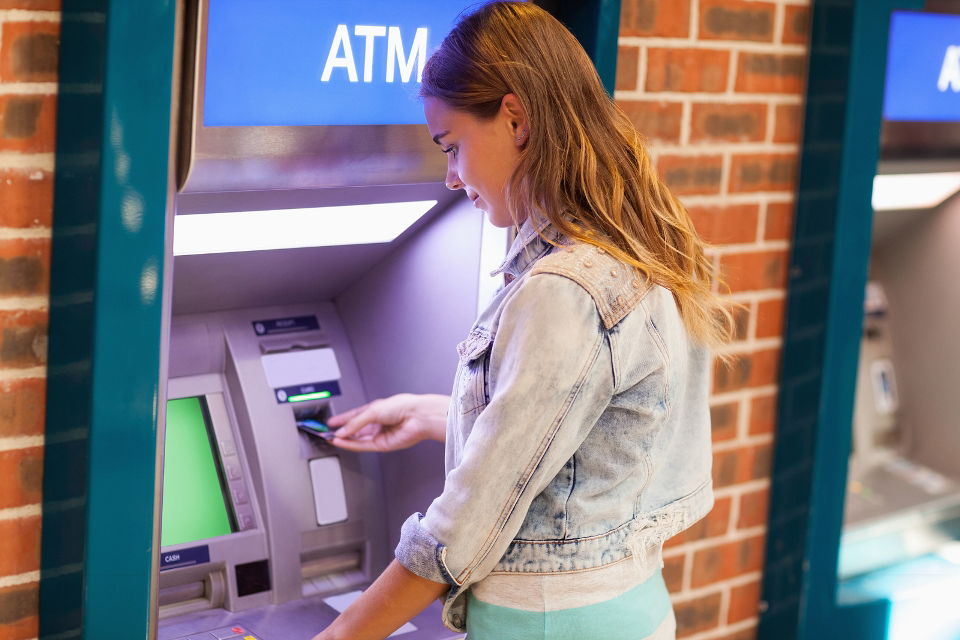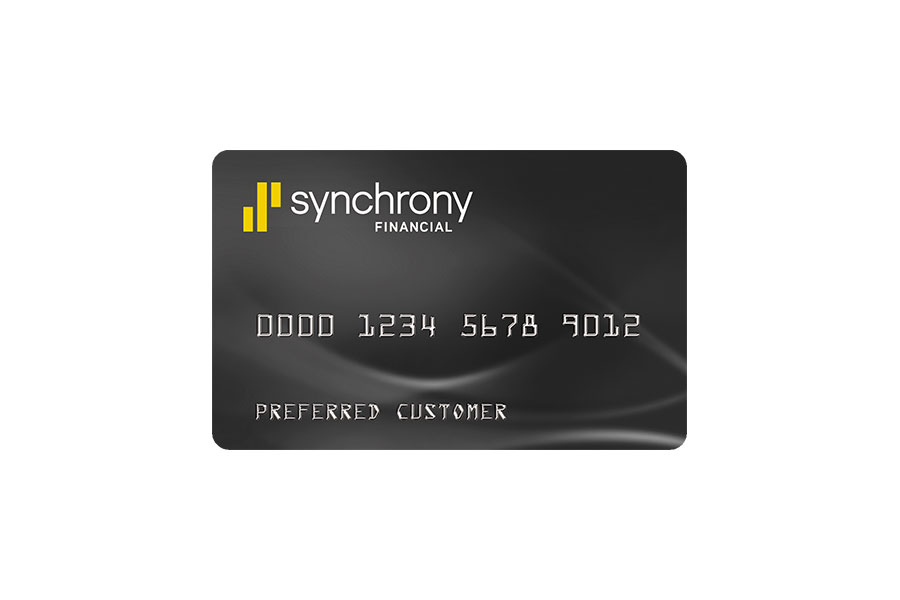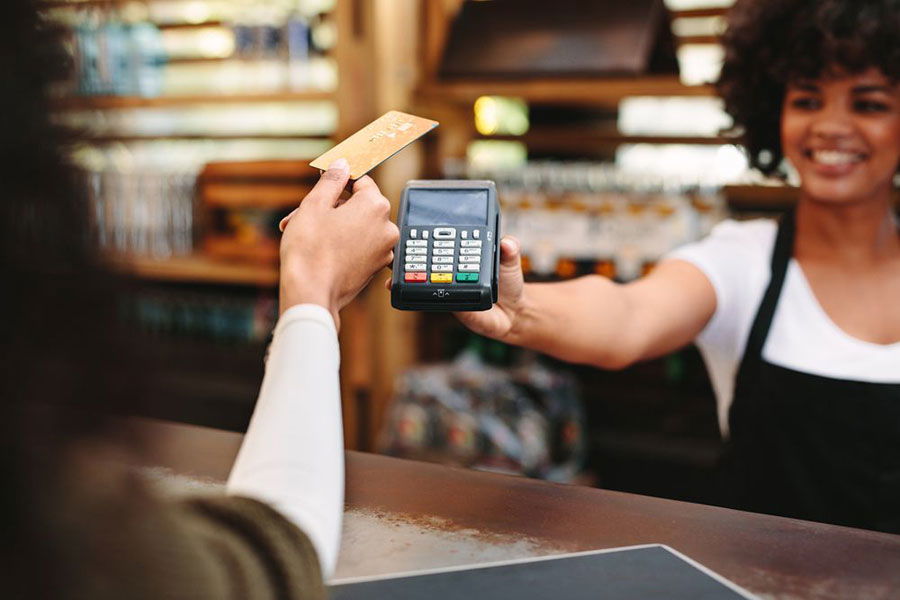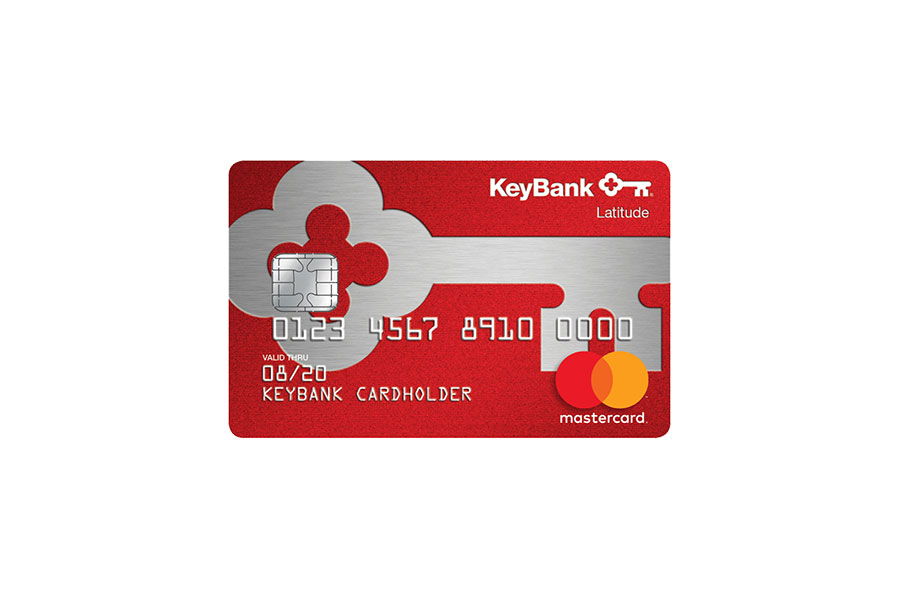Imagine this. You’re at the grocery store and the cashier has scanned all of your items. When it comes time to pay, you insert your debit card into the machine and find that it doesn’t work. You’re frustrated and wondering about the reasons why your debit card is malfunctioning.
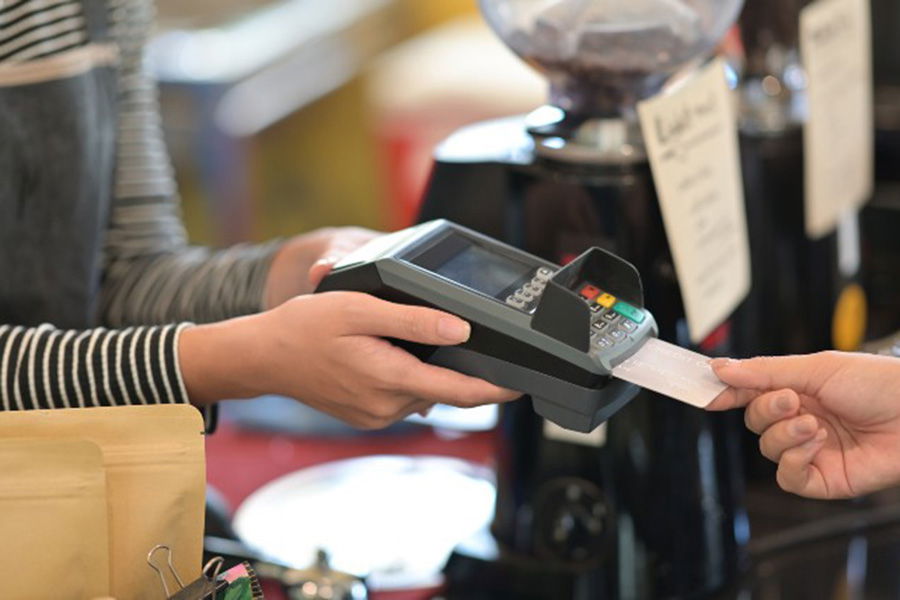
The good news is, regardless of what your situation may be, the solution is likely very simple.
18 Reasons Your Debit Card Was Declined
Here are some of the most common reasons debit cards don’t work, and what can you do to ensure your debit card is always there for you when you need it.
1. Insufficient Funds
If there isn’t enough money in your bank account, your debit card won’t work. That’s why it’s a good idea to always keep tabs on the account and make sure you always have available funds. You might want to check it every few days so that you know exactly where you stand.
Depending on your bank or credit union, you may be able to enroll in low balance or negative balance alerts. You can get notified every time your account balance gets below a certain threshold.
If you do end up in a situation where you have insufficient funds, don’t worry. It happens to everyone and you can always resolve the issue quickly by waiting for your paycheck or depositing some cash.
2. Expired Card
Just like credit cards, some debit cards come with expiration dates. If your debit card or bank card has expired, you won’t be able to use it at ATM networks or at stores. Fortunately, most financial institutions will send you a new card 30 days or so before your current card expires.
If you know your card is expiring soon but haven’t heard from your bank, don’t hesitate to reach out to them. Make sure your replacement card is on its way and hasn’t been stolen by someone from the mail. Once you receive your new debit card, cut up the old one and dispose of it so that nobody gets a hold of your personal details.
3. Daily Transaction Limit Has Been Met
Most banks and credit unions won’t allow you to spend more than $5,000 per day on your debit card or withdraw more than $500 from an ATM. This prevents someone from taking your debit card and spending all of your hard earned money. Check with your bank or financial institution to learn about your daily transaction limits or daily withdrawal limits as they can vary.
Furthermore, if you’re traveling and know you’ll spend money more than usual or have plans to make a large purchase, let them know you’ll need to exceed your limits. They may be willing to increase your daily transaction limit, especially if you’ve been a loyal customer.
4. Incorrect PIN
When you receive your debit card for the first time, you’ll need to come up with a personal identification number (PIN). This is usually a six-digit number that you’ll be asked to enter every time you want to make ATM withdrawals or a purchase. It can be your child’s birthday, wedding date, or any other date that’s important to you.
If you’re dealing with a declined transaction, there’s a chance you entered the wrong PIN. This may be the case if your debit card is brand new or you recently changed your PIN and forgot your new one. Since it’s unsafe to jot down your PIN and keep it in your wallet, it’s in your best interest to memorize it. In the event you do forget your PIN, contact your bank so they can reset it.
5. Too Many Incorrect PIN Attempts
In most cases, you’ll be able to enter your PIN a few times before your debit card no longer works. If you’ve plugged in your PIN several times within a short period of time and your debit card is declined, don’t worry.
All you have to do is reach out to your card issuer and explain the situation. Once you do, they’ll likely unblock your card and allow you to try again. Just make sure you figure out what your PIN is or work with your bank to set up a new one.
6. Wrong Information
If you use your debit card to shop online, you’ll need to enter all of your information correctly before the business can process your order. This includes the name on the card, card number, expiration date, and the CVC.
You may also have to share the billing and shipping address associated with your card. If any of your information is incorrect, the business won’t let you make your purchase. Before you submit your payment details, double check them to make sure they’re accurate. It’s also wise to forgo a debit card while making online purchases as credit cards are safer.
7. Damaged Card
Your debit card may be damaged, especially if you’ve had it for a while or tend to use or drop it frequently. For example, the card might be very bent or the magnetic strip may be in poor condition. The damage might be obvious but it can also be invisible. If you notice any damage or believe it exists, don’t hesitate to order a new card.
8. Suspicious Transaction
If you try to make a debit card transaction that doesn’t align with your normal spending or withdrawal limits, your bank or financial institution may decline it. Let’s say you typically use your debit card to purchase groceries or your morning cup of coffee. One day, you decide to buy a new couch and attempt to put $2,000 on your card.
Your bank may be suspicious of this transaction and block your card as a result. If you have plans to use your debit card in a way that you normally don’t, let your bank know in advance. In the event your card has already been declined, reach out to them and explain the situation.
9. Other Suspicious Account Activity
In some situations, your bank may block your debit card because it suspects suspicious activity that’s not associated with one particular transaction. Maybe they believe someone has tried to breach your account or take your identity. Call your bank or credit union to determine what’s happening. Then, work together to come to a resolution.
10. Technical Issues
Merchants that accept credit or debit card transactions may have a machine or terminal that simply doesn’t work due to a slow connection, power failure, transaction overload, or another problem related to contactless payments. This means that even if you have the funds in your account and your purchase is fairly typical, your debit card won’t work.
If you notice a technical issue with the machine or suspect there may be one, let the merchant know. It’s their responsibility to fix the technical glitch or invest in a new machine. Another option is to try another terminal or pay in cash, check, or an alternative payment method.
11. Card Hasn’t Been Activated
Debit cards won’t work unless they’ve been activated. As soon as you receive a new card, you should follow the instructions to do so. Fortunately, this is usually a fairly simple, fast process that you can complete in a few minutes.
You’ll likely need to call a specific phone number, plug in an activation code, and set up a PIN. You may also be required to go to an ATM and use your debit card. If you don’t follow through with this last step, don’t be surprised if your debit card declines. You can always activate your card at a later time if you forget to do it right away.
12. A Joint Holder Deactivated the Card
Some debit cards let you own your account with someone else, like a close friend or family member. If you’ve taken advantage of this option, know that the joint account holder is entitled to deactivate your card without asking for your permission.
If this occurs, you won’t be able to use your card to withdraw cash or make purchases. Reach out to your joint account holder and find out if they deactivated your account. You may also ask your bank or credit union to require that both account holders approve major changes, like deactivations.
13. Merchant Doesn’t Accept Your Debit Card
Not all merchants accept all types of debit cards. If you’re using a debit card from a credit card provider that’s not as well known as Visa or Mastercard, for example, the store you’re shopping at may decline it.
Additionally, some stores don’t accept debit cards at all so it’s important to read their terms and conditions before you shop. You may have to pay in cash or use a credit card instead.
14. Declined Due to Attempted International Transactions
If you’re trying to use your debit card abroad, you might not be able to. Before you travel internationally for business or pleasure, reach out to your debit card company to find out their overseas policy. You might learn that they won’t let you use your debit card while traveling abroad. In this case, you’ll have to figure out alternative payment methods.
Fortunately, most credit cards can be used in other countries so you might have to go the credit card route. If you’re already abroad and your card has been declined, contact your debit card issuer to determine if they can approve your request to pay via debit card.
15. Additional Information is Needed
Sometimes, the merchant might ask you to provide additional information before they approve your debit card transaction. For example, if you’re shopping online, a retailer might send a code to your cell phone or email and ask you to plug it in. This is usually done to add an extra measure of security to the shopping experience.
16. Gift Card Purchases
Due to fraud, some debit and credit card issuers don’t allow gift card purchases. In addition, retailers may prohibit the use of debit cards or credit cards for gift cards.
Before you purchase a gift card, check with your debit card company and retailer to make sure this isn’t an issue. You may have to use a different payment method to complete your gift card purchase.
17. Vendor Mistakes
If you’re using a debit card to pay for goods or services from a vendor, there’s a chance they made a mistake. This is especially likely if they had to enter your debit card information manually and missed a number or made a mistake on the cash register.
If you believe the vendor made a mistake, simply ask them to try again. They’ll be able to correct any mistakes they made the first time around and hopefully complete your transaction.
18. Money in the Wrong Account
Whether you’re a debit card newbie or veteran, you know that the funds will come from your checking or savings account. If you link your debit card to the wrong account, your card may be declined, especially if there’s not enough money in it. You should be able to easily change the linked account or make a simple transfer to add money to resolve this problem.
What should I do if my debit card doesn’t work?
While the steps to take in the event of a debit card decline will depend on your unique situation, here are some good general guidelines to follow.
- Try again: Swipe your debit card again as there may be a simple one-off issue that can be resolved right there and then.
- Check your account: Pull up the bank account that’s linked to your debit card to make sure there is enough money in it.
- Double-check your information: If you’re shopping online or making a purchase over the phone, be sure your card number, expiration date, and CVC are correct.
- Contact your bank or debit card company: Once you do, they can check the issue right away and help you resolve it.
Bottom Line
Having your debit card declined can be frustrating and annoying, especially if you’re in a hurry to make a purchase or need fast cash. Fortunately, the issue is usually simple to fix. All you have to do is reach out to your bank or debit card issuer. They’ll always be willing to help you and take the steps necessary to unlock or unfreeze your account.
Frequently Asked Questions
Why is my debit card declined when I have money?
Even if you have sufficient funds in your bank account, your debit card transaction might not work. Your card may be expired or damaged. Or perhaps it’s brand new and you forgot to activate it. Another scenario is that you entered the wrong PIN or other information.
Why doesn’t my ATM card work?
There are several reasons your ATM card may be malfunctioning. You may have entered the wrong pin or there might be an issue with the ATM. Try the transaction again and if it doesn’t work, contact your bank or debit card company.
What’s the deal with my declined debit card transaction when I shop online?
If you try to make an online purchase with your debit card, double check to make sure you entered the right information or your transaction won’t work. You may also have to verify your phone number or email and plug in a code as an extra security measure.
Should I use a debit card or credit card?
The ideal card depends on your needs and preferences. While a credit card can allow you to make certain purchases without any money in your account, your debit card offers access to the money in your bank accounts.
A credit card involves borrowing money and may help you improve your credit score, whereas a debit card might prevent you from overspending and steer you to save money. You can always keep both hands with you and use them at different times.
What happens if my debit card gets declined?
If your debit card was declined, you won’t be able to use it for your ATM withdrawal or purchase. You’ll need to find an alternative payment method and resolve the issue with your bank or card issuer.
Can someone steal my debit card?
Since debit cards require PINs and credit cards do not, people are more likely to steal credit cards than debit cards. However, you should still be cautious with your debit card. Don’t reveal your PIN to anyone.
What is the daily withdrawal limit or daily spending limit?
Visit your financial institution’s website or look at the documents you received when you first activated your debit card. There should be information that covers banking and how much you can withdraw or spend on a daily basis.
How do I update my debit card information?
If you signed up for mobile or online banking, log in to your account with your username and password and go to the settings section. From there, you should be able to update or change your debit card details.
Another option is to contact customer service at your bank, credit union, or other financial institution and work with a customer service representative that can change your information.
How long does it take to resolve a debit card declined?
It all depends on the cause of the decline. Often, however, all you have to do is call your bank and they’ll take care of the issue immediately. If the problem involves fraud or an international purchase, however, you might have to wait longer for a resolution and further assistance.
Can I withdraw money if a check I deposited has not yet been cleared?
Your debit card will only work if you have enough funds in your account. But if you’re short on funds, deposit a check that’s in the clearing process, and have overdraft protection, you may still be able to withdraw the money.

